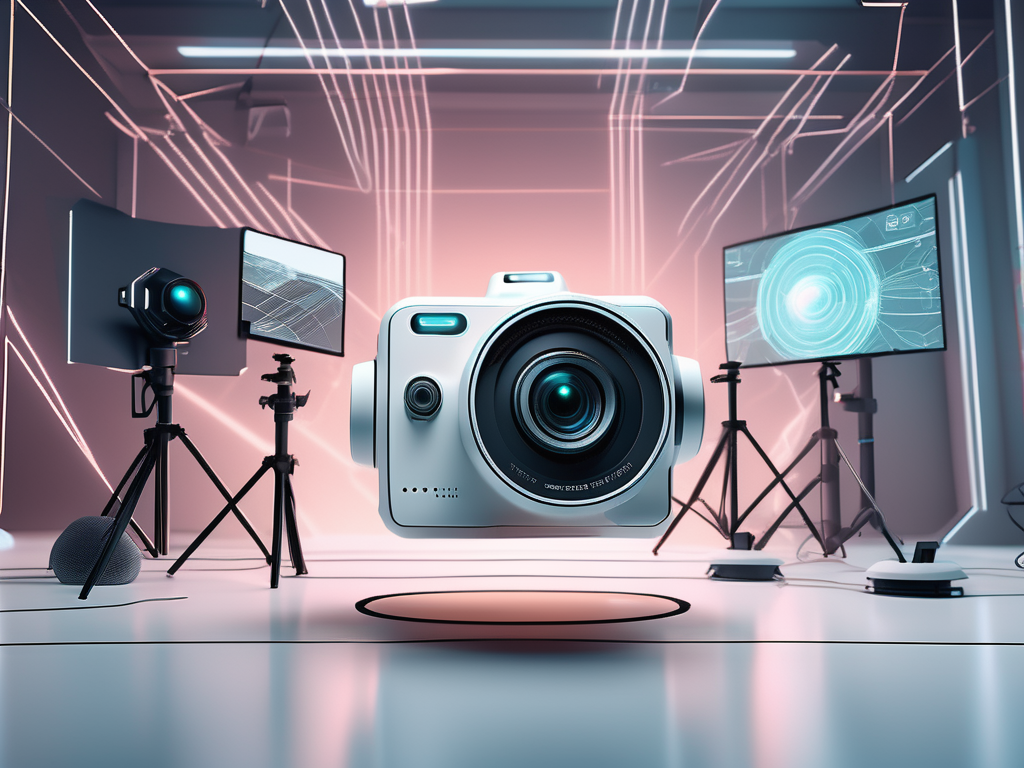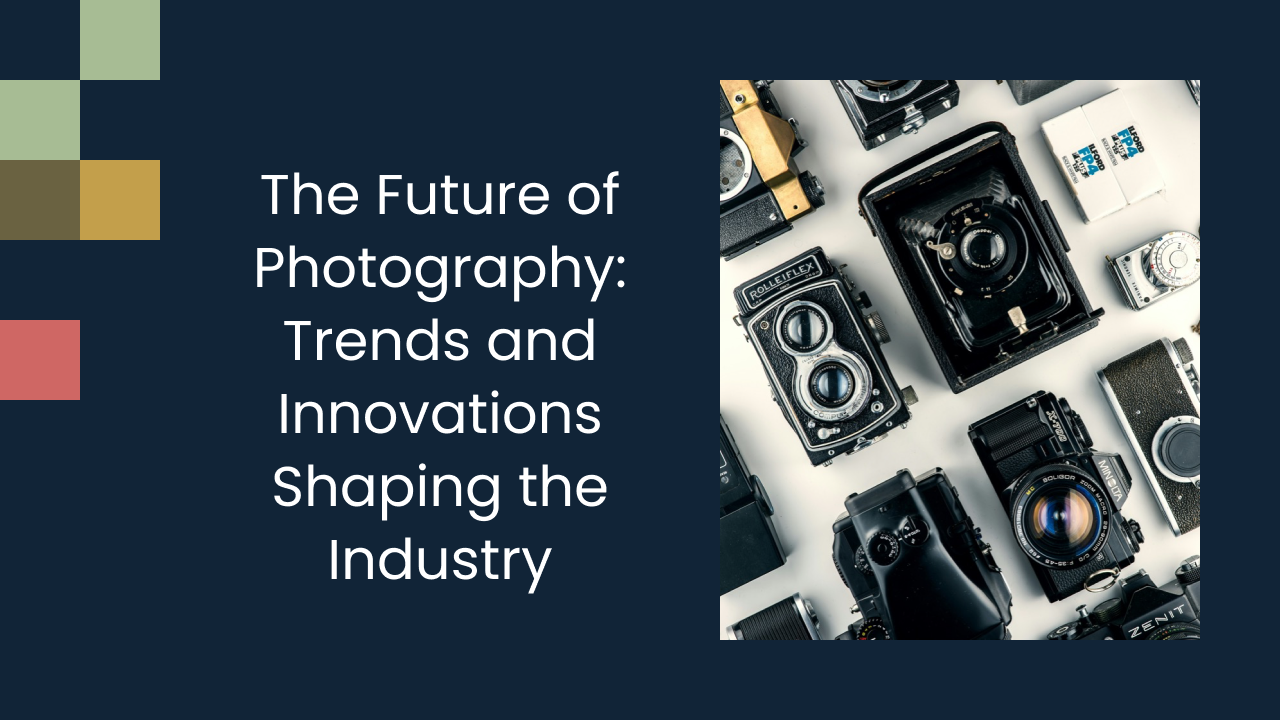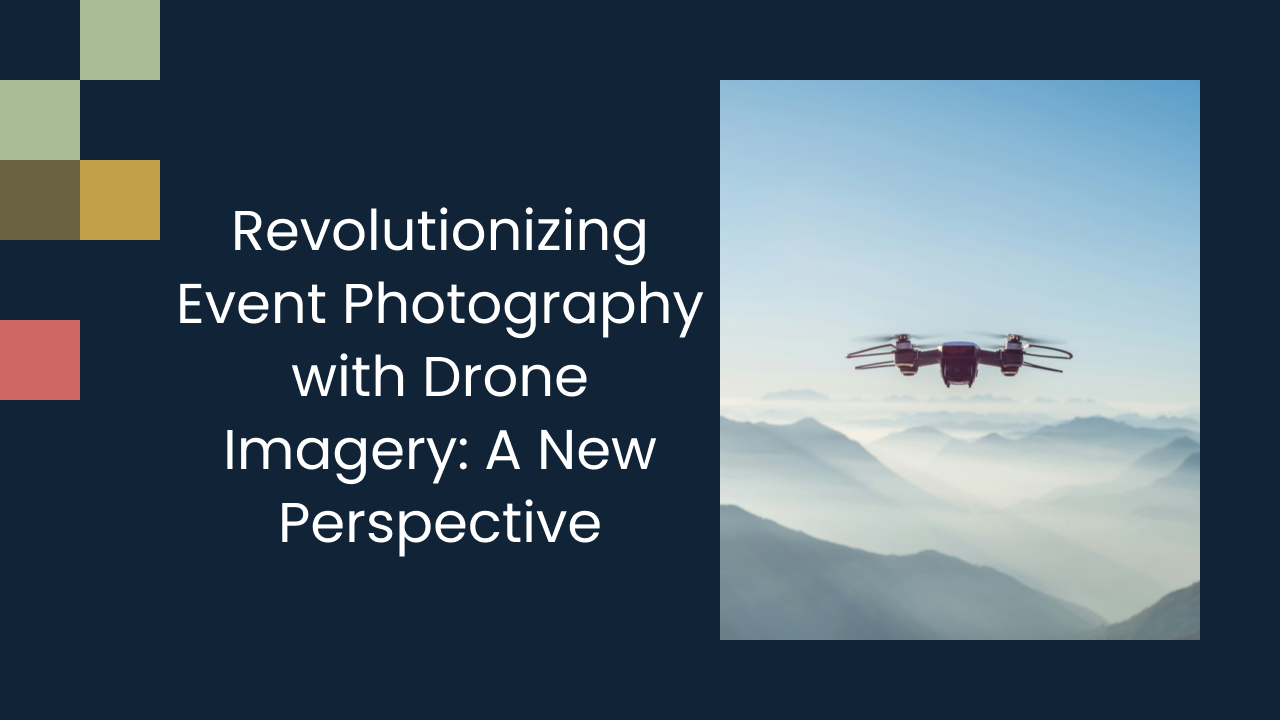The Future of Photography: Trends and Innovations Shaping the Industry

In today's rapidly evolving digital landscape, the photography industry has undergone significant changes. The emergence of new technologies and shifting consumer preferences have paved the way for innovative trends that are shaping the future of photography. In this article, we will explore the current photography landscape, the technological innovations transforming the industry, the rise of mobile photography, the evolution of photography styles, and the future of professional photography.
Understanding the Current Photography Landscape
The photography industry is a dynamic and competitive space, with numerous players influencing its direction. From large camera manufacturers to software developers and online platforms, the key players in the industry are constantly evolving and adapting to changing trends and consumer demands.
Key Players in the Photography Industry
Canon, Nikon, Sony, and Fujifilm are some of the major camera manufacturers dominating the market. These companies consistently push the boundaries of technological advancements, introducing high-performance cameras that cater to professionals and enthusiasts alike.
Canon, with its renowned EOS series, has been a trusted name in the industry for decades. Their cameras are known for their exceptional image quality, advanced autofocus systems, and robust build quality. Nikon, on the other hand, has a strong foothold in the professional photography market with its flagship DSLR cameras, offering unparalleled image clarity and low-light performance.
Sony, a relative newcomer to the industry, has made significant strides with its mirrorless camera systems. Their compact and lightweight bodies, combined with cutting-edge technology, have attracted a loyal following among photographers seeking portability without compromising on image quality. Fujifilm, known for its retro-inspired designs, has carved a niche for itself with its X-series cameras, offering a unique shooting experience and exceptional image colors.
Adobe, with its popular software Photoshop and Lightroom, plays a crucial role in post-processing, allowing photographers to enhance and manipulate their images. These powerful tools provide a wide range of editing options, from basic adjustments to complex retouching, empowering photographers to bring their creative vision to life.
Additionally, online platforms like Instagram and Flickr provide a global stage for enthusiasts to share their work and gain recognition. Instagram, with its visually-driven interface and vast user base, has become a go-to platform for photographers to showcase their portfolios and connect with a like-minded community. Flickr, on the other hand, offers a more curated and professional environment, attracting photographers who seek a platform to exhibit their work in a more traditional gallery-style format.
Current Trends in Photography
One of the prominent trends in photography is the increasing demand for authentic and genuine imagery. With the rise of social media, consumers are seeking relatable and unfiltered visuals that resonate with them on a personal level. This shift in preference has led photographers to focus on capturing candid moments and genuine emotions, rather than staged or overly edited images.
Another prevailing trend is the rise of drone photography. Aerial shots captured by drones provide photographers with unique perspectives and breathtaking imagery, revolutionizing the way we capture landscapes, events, and even architecture. Drones equipped with high-resolution cameras and advanced stabilization systems allow photographers to capture stunning aerial footage and photographs that were once only possible with expensive helicopter rentals.
Furthermore, the advent of mirrorless cameras has had a significant impact on the photography industry. These cameras, with their compact size and electronic viewfinders, have become increasingly popular among photographers who value portability and versatility. Mirrorless systems offer a wide range of lens options, allowing photographers to adapt to different shooting situations effortlessly.
As technology continues to advance, the photography landscape will undoubtedly undergo further transformations. From the development of artificial intelligence-powered editing tools to the integration of virtual reality in photography, the future holds exciting possibilities for both professionals and enthusiasts alike.
Technological Innovations Transforming Photography
In recent years, technological advancements have significantly transformed the photography industry. Two key innovations that have had a profound impact are drone photography and artificial intelligence (AI).
The Rise of Drone Photography
Drone photography has revolutionized the way photographers can capture images from above, providing a whole new dimension to visual storytelling. From stunning aerial landscapes to dynamic action shots, drones have expanded the possibilities for photographers.
The compact size and ease of use of drones have made them accessible to a broader audience. This democratization of aerial photography has opened up new creative avenues for enthusiasts and professionals alike.
Moreover, drone technology continues to evolve rapidly, with advancements in camera stabilization systems and obstacle avoidance capabilities. These improvements have enhanced the quality and safety of aerial photography, allowing photographers to push the boundaries of their creativity even further.
Impact of Artificial Intelligence on Photography
The integration of AI in photography has brought about significant improvements in image processing and editing. AI-powered technologies can now enhance images through automatic color correction, noise reduction, and image sharpening.
Furthermore, AI algorithms can analyze vast amounts of data to predict optimal camera settings for a given scene, helping photographers capture the perfect shot effortlessly. This has made photography more accessible to beginners while also empowering professionals to streamline their workflow.
As AI continues to advance, we are witnessing the emergence of innovative applications such as AI-generated art filters and real-time image enhancement. These developments are reshaping the creative possibilities in photography, blurring the lines between traditional photography and digital art.
The Shift Towards Mobile Photography
With the rapid advancements in smartphone camera technology, mobile photography has become a force to be reckoned with. The convenience and portability of smartphones have made them the go-to devices for capturing and sharing photos.
Not only are smartphone cameras convenient, but they also offer a wide range of creative possibilities for photographers. The ability to shoot in various modes such as portrait, night mode, and even RAW format provides users with the flexibility to experiment and push the boundaries of their creativity.
Smartphone Cameras vs Traditional Cameras
The quality of smartphone cameras has improved significantly over the years, challenging the dominance of traditional cameras. With features like multiple lenses, high-resolution sensors, and advanced computational photography, smartphones are capable of producing stunning images.
Furthermore, the accessibility of editing tools and photo-enhancing apps directly on smartphones has democratized photography, allowing users of all skill levels to edit and enhance their photos with just a few taps.
Moreover, the integration of social media platforms within smartphone cameras has encouraged users to share their photos instantaneously, leading to the proliferation of visual content on platforms like Instagram and Snapchat.
The Influence of Social Media on Photography
Social media platforms have transformed the way we consume and engage with photography. They have provided photographers with a global platform to showcase their work, gain exposure, and connect with a wider audience.
Photographers are now able to interact with their audience in real-time, receiving feedback, comments, and even direct messages that can help them understand their viewers' preferences and tailor their content accordingly. This direct line of communication has fostered a sense of community among photographers and their followers.
The instant feedback and engagement on social media platforms have become a valuable tool for photographers to refine their skills and develop their personal style. Additionally, social media's power to reach thousands, if not millions, of users has created new avenues for photographers to monetize their craft.
The Evolution of Photography Styles
As the photography industry continues to evolve, new styles and genres have emerged, catering to different artistic expressions and consumer preferences.
Emergence of New Photography Genres
Street photography, lifestyle photography, and portrait photography are some of the genres that have gained popularity in recent years. These genres offer a unique perspective on capturing everyday moments, exploring human connections, and telling visual stories.
Additionally, conceptual photography has become a medium for photographers to express abstract ideas and emotions through surreal and thought-provoking imagery.
The Resurgence of Vintage Photography Techniques
While technology continues to propel the photography industry forward, there is also a growing interest in vintage photography techniques. Film photography, instant cameras, and alternative printing processes like cyanotype and platinum printing have experienced a revival among enthusiasts seeking a nostalgic and tactile approach to photography.
The Future of Professional Photography
With the ever-changing photography landscape, the role of professional photographers and their career opportunities are evolving.
Career Opportunities in the Evolving Photography Industry
While technology has made photography more accessible to the masses, it has also opened up new avenues for professionals. Opportunities in commercial photography, fashion photography, photojournalism, and wedding photography continue to thrive.
Additionally, the demand for visual content in advertising, branding, and digital media has created a need for specialized skills in areas like product photography, food photography, and architectural photography.
The Changing Role of Professional Photographers
Today, professional photographers need to adapt to changing trends and technologies to stay relevant in a highly competitive industry. The ability to leverage social media platforms, master post-processing software, and embrace emerging technologies like virtual reality and augmented reality are becoming essential skills.
Furthermore, professional photographers must demonstrate creativity, storytelling abilities, and a unique style to stand out in a saturated market. Collaborating with brands, developing a strong online presence, and continuously honing their craft are crucial for long-term success.
In conclusion, the future of photography is being shaped by innovative trends and technological advancements. From the rise of drone photography and the integration of AI in image processing to the influence of social media and the evolution of photography styles, the photography industry is undergoing significant transformations. As professionals and enthusiasts alike navigate this evolving landscape, it is essential to embrace change, adapt to new technologies, and cultivate a unique artistic voice to thrive in the future of photography.




